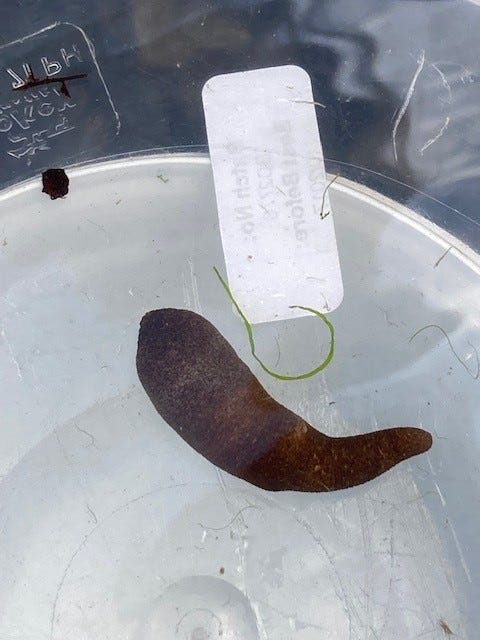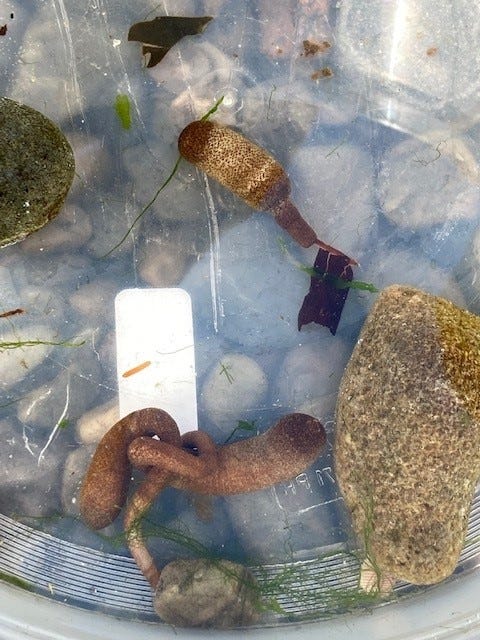It never ever fails to be interesting to have a seashore explore but after many years of exploring and helping others to, it is fairly rare to come across something that is a complete mystery.
I was delighted when this happened to me this summer. There was a new ‘thing’ for me as part of a public seashore explore and it took some digging to find out what it was.
When a child brought the ‘thing’ to me, I must admit, I touched it, squeezed it gently, looked at it and couldn’t work out if it was a bit of plant, or an egg case. It did feel like an animal but at that point there was no sign of any recognisable head or tail.
On putting it in water it began to move. ‘It is an animal!’ I excitedly exclaimed and then it started to expand until it looked like a well-fed leach. Some other flummoxed people and I had our noses in seashore guides and internet searches. We finally recognised it as a type of peanut worm, of the Sipuncula worms, quite common apparently.
The peanut worms were busily doing their thing as part of the marine ecosystem, and I didn’t even know they existed! Finding out new things in nature is a very humbling experience.
There are 162 species of peanut worms. Most are detritus feeders and they in turn are a good source of protein for those higher up in the food chain. They have tentacles around their mouth for feeding and there is not a lot of other features to its simple body.
That afternoon we found another three peanut worms of the same species, Nephasoma (Nephasoma) minutum, I think they were. On introducing two of them, they became entangled in one another. To see a video of the peanut worms tangling up in Ullapool, please visit our Facebook Page:
It goes to show we never know when we will discover something new to us. The marine world is full of unfound treasures for everyone.
Jenny Grant High Life Highland Countryside ranger for Wester Ross holds a deep passion for the nature and heritage of Scottish Highlands. Her lifelong pursuit involves learning and teaching Highland ecology, embracing both scientific study and local wisdom. Jenny's holistic approach extends beyond academia; she immerses herself in nature through hikes, wildlife encounters, and community engagement. Her enthusiasm is infectious, often sharing insights and leading conservation efforts. Jenny embodies a commitment to understanding and preserving the diverse ecosystem around her, proving that ecological knowledge is not just learned but lived and cherished.







